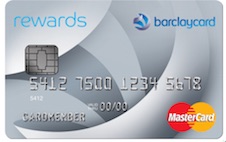Bad Credit
Your credit account history is collected by credit bureaus and compiled into a credit report. Having lots of negative information on your credit report means you have bad credit. You may have had accounts sent to a collection agency, charged high balances, filed bankruptcy or had a vehicle repossessed. Bad credit usually occurs when these things happen several times rather than just a single time.
Effects of Bad Credit
When you have bad credit, lenders are less likely to lend to you because you may fall behind on any credit card or loan you’re given. So, your applications for credit could be denied. If you do get approved, you’ll probably have to pay a higher interest rate than borrowers who have a good credit score. The interest rate is the lender’s way of compensating for the risk of loaning money to you.
Bad credit affects more than just your credit card and loan approval and interest rate. Insurance companies use a form of your credit score to give you an insurance rate. Some utility and cell phone providers charge a security deposit on applicants with bad credit. Landlords may require a high security deposit if you have bad credit, or they may turn you down for an apartment all together.
How to Know If You Have Bad Credit
If you’re paying any attention to your finances, you probably have an idea of whether you have bad credit. You know if you’ve missed payments or have large big credit card balances. If you’ve had recent credit applications turned down, your interest rates have increased, or your credit card issuers have lowered your credit limits, it’s a sign that you have bad credit.
You can check your credit score to find out whether you have bad credit. There is no universal cut off between a good credit score and a bad credit score, but you generally have bad credit if your credit score is below 620.
You can tell what’s causing you to have bad credit by checking your credit report. U.S. citizens are entitled to a free credit report each year from the three credit bureaus. So you don’t have to pay anything to check to see what’s causing your bad credit.
Steps to Fix Bad Credit
Bad credit doesn’t have to last forever. You can take steps to improve your credit score over time. First, focus on removing negative information from your credit report either by using a credit report dispute or a credit repair technique. Then, you can focus on adding positive information to your credit report by adding new accounts and paying them on time.
Featured Credit Cards for Bad Credit
-
Secured credit cards
Secured credit cards are the most common type of credit cards. They are secured by collateral. That means that like secured loans, such as mortgages or auto loans, secured credit cards are directly connected to property that a lender can seize of the cardholder fails to pay.
-
Unsecured credit cards
Unsecured credit cards are the most common type of credit cards. They are secured by collateral. That means that like secured loans, such as mortgages or auto loans, secured credit cards are directly connected to property that a lender can seize of the cardholder fails to pay.

